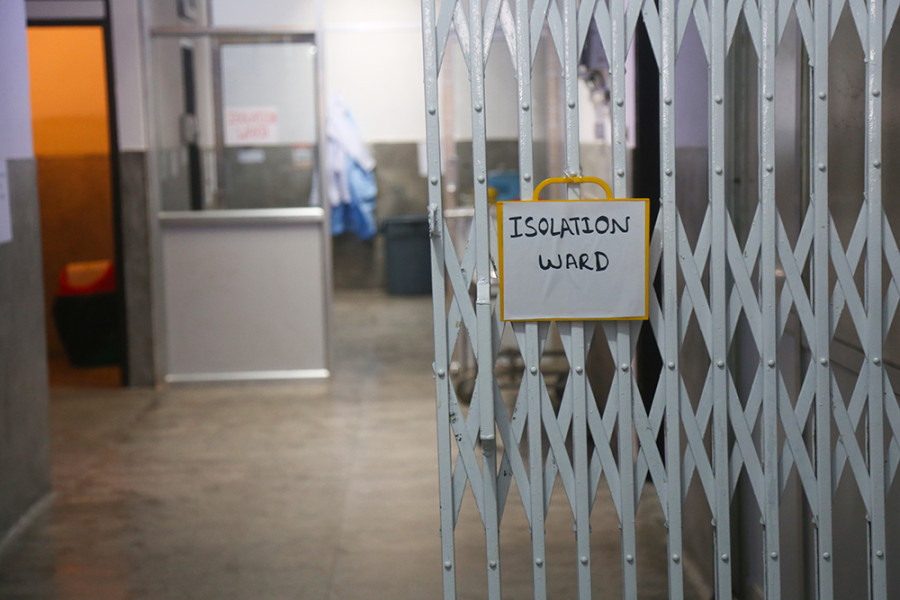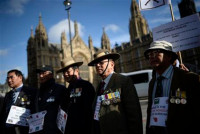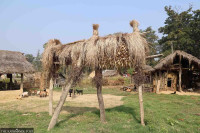National
In the midst of Covid-19 outbreak, government transfers health officials
Transfer of crucial officials, like directors of Sukraraj Hospital and Epidemiology and Disease Control Division, could weaken an already frail public health system, say doctors.
Arjun Poudel
Dr Basudev Pandey, director of the Sukraraj Tropical and Infectious Disease Hospital, which is the primary hospital for treatment of the coronavirus, has been transferred to the Epidemiology and Disease Control Division while Dr Bibek Kumar Lal, director of that division, the agency responsible for containing the epidemic throughout the country, was moved to the SAARC TB and HIV/AIDS Centre.
Similarly, Dr Roshan Pokhrel, director-general of the Department of Health Services, and Mahendra Shrestha, spokesperson for the Health Ministry and chief of the Health Coordination Division, were also transferred, according to the notice issued by the Health Ministry on Friday.
Lal said that he wasn’t even informed officially about the transfer and only learned of it from the media.
“Nepal might be the only country in the world where government employees learn of their transfers through the news media,” Lal told the Post. “I don’t know what role could I play at the SAARC TB and HIV/AIDS Centre, as the agency is not active.”
The public health system of a country is not just about infrastructure; it also concerns human resources—experienced doctors, public health specialists, laboratory technicians, information analysts and competent managers. Transferring critical persons who were overseeing the Covid-19 response even as the outbreak continues to ravage the world is counterproductive and dangerous, say public health experts.
“The recent transfer of experienced and technical manpower shows that the government is not serious about public health and safety,” said a Health Ministry official on condition of anonymity. “Transferring people at a critical time is not the right decision.”
Attempts to reach the Health Ministry for an official comment on the transfers were unsuccessful as the spokesperson had also been transferred.
However, officials at the Health Ministry say that it will take months for new staff to grasp the ins and outs of their departments and understand the planning of their predecessors, as there is no system in the country to facilitate the change of guard. This could seriously impact Nepal’s response to the coronavirus outbreak, they say.
The transfer of crucial human resources at such a sensitive time shows that the country is not taking the coronavirus threat seriously, say public health experts.
“The transfers show that we are still not serious about the risk of a coronavirus outbreak in the country," said Dr Baburam Marasini, former director of the Epidemiology and Disease Control Division.
In recent years, there have been numerous pandemics that have threatened public health across the world. Each time, the World Health Organization and other supranational organisations have attempted to help put in place a more robust public health system, especially in developing countries like Nepal.
In April 2015, the World Bank held a high-level meeting in New York to discuss global preparedness to deal with the Ebola epidemic that was ravaging West Africa at that time.
Senior officials from the Finance Ministries of countries with weak health systems, including Nepal, were invited to the meeting to discuss how budgets could be tailored to strengthen public health systems.
“Our officials took the occasion to visit New York and other American cities, but did nothing after returning the country,” said Marasini, who was then director of the Epidemiology and Disease Control Division.
Successive governments have consistently failed to allocate a sufficient budget to strengthen the public health system, which has resulted in a subsequent failure to maintain necessary diagnostic and quarantine facilities at the Sukraraj Tropical and Infectious Disease Hospital and bio-safety level-3 laboratory at the National Public Health Laboratory.
In January, experts from the National Institute of Virology in Pune, India, who were invited by the World Health Organization's country office in Nepal to evaluate the bio-safety laboratory, had recommended repair, maintenance and upgradation. Another team of experts from the WHO country office pointed out several glaring flaws in the isolation ward at Sukraraj.
Having proper quarantine facilities are especially important while dealing with a highly pathogenic virus like the Covid-19, say doctors.
The World Health Organization, on January 30, declared the ongoing Covid-19 outbreak a public health emergency of international concern, specifically saying that its “greatest concern is the potential for the virus to spread to countries with weaker health systems, and which are ill-prepared to deal with it.”
This statement was reiterated by the WHO’s executive director for health emergencies on February 13.
“Our biggest concern continues to be the potential for Covid-19 to spread in countries with weaker health systems,” said Dr Michael Ryan at the Emergency Ministerial Meeting organised by the African Union and Africa Center for Disease Control and Prevention. “We are calling on all countries to invest urgently in preparedness. We have to take advantage of the window of opportunity we have, to attack the virus outbreak with a sense of urgency.”
But despite repeated warnings sounded by the global public health body for countries with weak health systems, Nepal does not seem to have much. Even now, Epidemiology and Disease Control officials say a separate budget has not been allocated to deal with the coronavirus and that they are working out of their regular budget.
“Every country has its own mechanism to deal with epidemics. These bodies are autonomous and have sufficient budget for preparedness,” said the Health Ministry official. “Nepal does not have a separate budget nor an independent mechanism to advise the government on public health measures.”
While China has been commended for its efforts in containing and diagnosing the virus, its spread across the world continues to be a cause for concern. So far, 28 countries have reported cases of coronavirus but there has been a recent spike in deaths outside China. On Sunday, South Korea reported 123 new cases, bringing its total to 556, with a fourth death. Iran has reported 43 cases with eight deaths, the highest death toll outside China. There are now worries that the window to prevent a global pandemic is rapidly closing.
New developments have also emerged, forcing countries to impose more stringent control measures at their ports of entry. The case of a 20-year-old Chinese woman from Wuhan, the epicentre of the coronavirus outbreak, who spread the disease to five others without ever showing symptoms herself offers “new evidence that the virus can be spread asymptomatically”, according to Reuters.
At least 2,345 people have died and over 76,000 have been infected worldwide.
In response, numerous countries have imposed travel restrictions and stringent screening procedures. In a new ruling, India has decided to screen passengers from Nepal, Vietnam, Indonesia and Malaysia, in addition to those from Hong Kong, Thailand and South Korea.
Nepal, on the other hand, has not even been keeping a record of all passengers coming in from China, according to Dr Nishant Thakur, chief of the health desk at the Tribhuvan International Airport.
The government is quickly losing opportunities to prevent the epidemic from reaching Nepal and prepare for possible epidemics in the future, said Dr Shyam Raj Upreti, former director of the Child Health Division.
“Every disaster brings some opportunities,” Upreti told the Post. “We could have strengthened our health system by learning from the epidemic but we did not. I cannot imagine what will happen if a situation like in China occurs in our country.”
The government, to its credit, managed to airlift over 170 Nepalis out of Hubei and place them in a quarantine facility in Bhaktapur. None of the rescued shows any symptoms of the virus but if they do, Nepal might be in a fix.
“None of the hospitals in the country has the capacity to treat such patients,” said Upreti. “Instead of constructing facilities, imparting preparedness training to health workers, the government opted for haphazard measures, which could be costly to the country.”




 8.75°C Kathmandu
8.75°C Kathmandu















